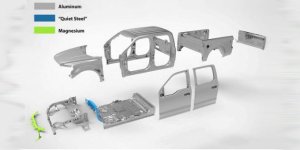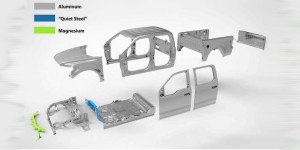I just read an article about the new Ford F-150 in the March 2015 issue of CONSUMER REPORTS and this is a direct quote from it:
"Ford claims that body-repair costs won't be any higher than those for a steel-bodied truck....."
Of course they are going to say that. :laughing:
The insurance companies are also going to make every attempt to see that happen.
The first problem is, there will be a limited number of places who will have the equipment, and the training to repair these. When there is a shortage of anything, the price goes up.
I have taken structural aluminum repair certification classes. They called for all the tools, and and equipment, used in the repair of aluminum to be dedicated to that, and kept separate from the tools, and equipment used in the repair of steel vehicles. Specifically, they recommended these repairs be done in a separate area, or facility. By technicians who are specifically working on only an aluminum vehicle.
This is because, working with steel all day in a body shop, creates tiny metal particles that can, during hammering, clamping, gluing, or just falling off of the technician, who just finished grinding some steel, can be impregnated into, or left in contact with the aluminum sheet metal. Which of course, leaves the possibility of corrosion.
If that investment is what actually ends up being required to repair these, that will also limit the number of facilities that will be able to do this type of repair.
The welding of aluminum, is a specialized skill. Since, it was never needed in a traditional body shop, few body technicians have acquired those skills. Since, lives depend on structural welds, time will be needed for them to develop those skills.
Somewhere way down the road, when all this is common, and everyone can fix them, it is much more likely it will not cost more for the labor end.
The parts will cost more to produce. And, anyone who believes that will not equate to higher prices, is not familiar with the level of greed manufacturers have shown in the past, with respect to crash part prices.


